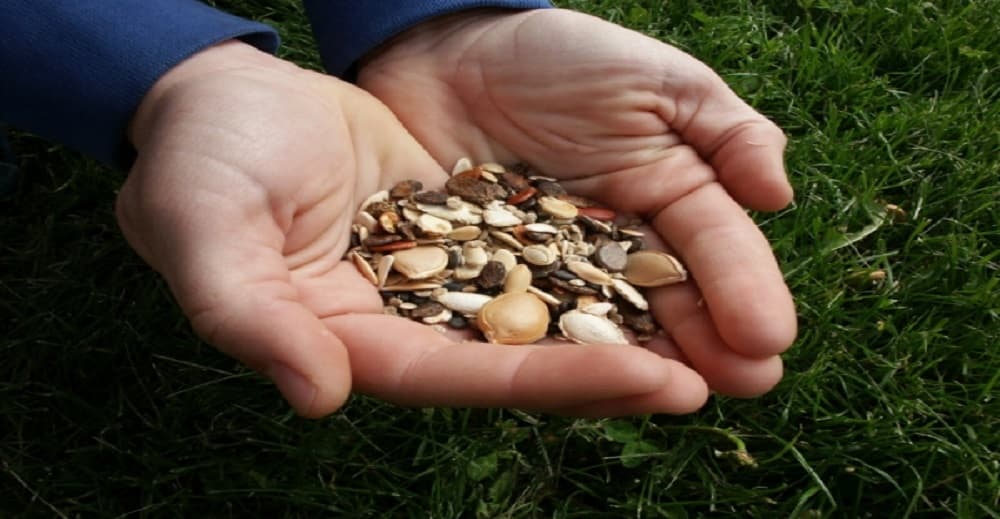Hybrid Seed Market Expansion to Address Global Hunger

The hybrid seeds market is expected to grow at a CAGR of 09.19% from an initial evaluated value of US$20.16 billion in 2021 to reach US$37.302 billion in 2028.
A hybrid is created by crossing two different varieties of the same plant. The crossing is the process of moving pollen from one plant's male flower to the female floral parts of another plant. When the female flower's ovary is pollinated, it begins to enlarge and generate fruit. The seeds that develop inside the fruit are hybrid. Disease resistance, increased flavour or production, earlier maturation, and other characteristics are common in hybrid seeds. Different features are beneficial for various crops. In general, hybrid seeds can be expected to produce more than open-pollinated seeds. Hybrid seeds are widely used in commercial farming, particularly to boost crop yields. Flower and vegetable hybridization is quite popular. Roses, tomatoes, and sweet corn, in particular, are commonly cross-bred to create hybrid varieties.
The rising demand for fruits and vegetables is likely to boost the hybrid seed market forward.
Fresh fruits, vegetables, and other crops are in increased demand as the general public's concern for personal health grows. Customers' acceptance of healthy diet changes contributes to this demand. The United Nations (UN) General Assembly declared 2021 the International Year of Fruits and Vegetables to enhance awareness of the nutritional and health benefits of fruits and vegetables, as well as their contribution to a balanced and healthy diet and lifestyle. It also seeks to raise awareness of the need to reduce losses and waste in the fruit and vegetable sector (UN, 2020) while improving environmental results. Action is required at the national level to boost fruit and vegetable production and consumption, as well as make them more economically available to consumers while producing economic, social, and environmental benefits following the Sustainable Development Goals. Due to rising food supply demand, rising health awareness, and the desire to boost food supply yields, it is predicted that the hybrid seeds market would rise rapidly throughout the forecast period. For instance, the fourth annual Pragati Diwas was hosted by Bayer's Vegetable Seeds division at its massive breeding facility in Chikaballapur, close to Bengaluru in January 2021. At the exhibition, 14 different fruit and vegetable crops including tomatoes, hot peppers, watermelon, cabbage, cauliflower, cucumber, and beans were represented by more than 120 high-yielding hybrid seeds. In-depth talks on issues like selecting the best hybrid seed based on regional growing circumstances, integrated crop management from seed to harvest, and the best procedures for disease and pest management were had with farmers by Bayer agronomists.
The increased demand for food items in India is attracting market participants.
The Food and Agricultural Organization (FAO) projects that the population of India will increase to 8.19 billion by 2025 and 8.55 billion by the end of 2030, highlighting the necessity of increasing productivity and production to satisfy the changing demands of consumers. Farmers are being forced to use hybrid seeds as a result of the rapid population growth to increase yield. Given the rising need for food items, the major players are concentrating more on India to keep their products on the market. For instance, four hybrid seeds were purchased from Bayer CropScience in November 2021 by Crystal Agricultural Protection Limited, an Indian R&D-based crop solution company. By making this purchase, Crystal Crop Protection and Bayer have entered into a contractual agreement for the purchase of hybrids of cotton, mustard, pearl millet, and grain sorghum in India. Crystal expects this acquisition to boost its field crops seed business since it delivers strong brands and R&D capabilities. The provision of high-performance seeds for the sustained growth of Indian agriculture is made possible by this acquisition.
Innovations and new product development will usher in a new era of market expansion.
In the hybrid seed market, new product improvements have emerged as a prominent trend. As the demand for food goods rises, the market's top players are focusing more on innovation to keep their products competitive. Ankur Seeds has been working systematically to develop effective, need-based solutions, aiming for much-needed yield improvements of up to 50% while using fewer inputs, paving the door for farmers to achieve significant economic returns. In addition, okra, also known as Bhendi Moench, is presently the most important vegetable crop farmed in the Indian subcontinent. The crop is also gaining appeal among vegetable eaters worldwide. Keeping in mind that innovation is always crucial to driving the future, Advanta, India's number one okra seed business, has released a new red okra hybrid named KUMKUM. Kumkum is high in nutrients and is used in traditional markets as a fortified okra. Kumkum has received a positive response from consumers in fresh produce marketplaces. Kumkum is an appealing value proposition for farmers and value chain partners because of its incremental return on investment. Many crops already use hybrids, but wheat and the manufacture of hybrid wheat seeds is complicated. To feed an expanding population, the wheat yield must be greatly increased. Both public and private breeding projects for hybrid wheat, such as the one at BASF, are required to achieve this. BASF will launch Ideltis, its new brand name for hybrid wheat seeds, in June 2021. It displays the company's dedication to preparing wheat for long-term prosperity through inventive hybridization. BASF's hybrid wheat is designed to provide farmers with higher and more consistent yield and quality performance to develop one of the world's most important crops.
Get in Touch
Interested in this topic? Contact our analysts for more details.
Latest Blogs

Solar Control Window Films Market expected to reach USD 1,224.951 million by 2030
RecentlyTop Companies Leading the Silicon-Based Capacitor Revolution
Recently
The Role of Chemical Blowing Agents in Sustainable Foaming Solutions
Recently
Top 10 Emerging Beverages Set to Dominate the Market in the Coming Years
Recently